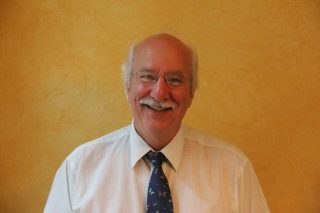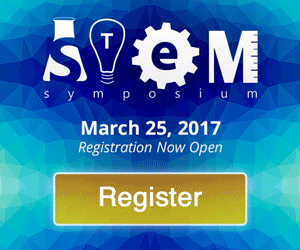
George Wolfe’s teaching career began serendipitously in Africa, after his tour in the Peace Corps took him to Zaire. It was during those years of training and service he found his passion for science teaching. After Zaire, Wolfe continued teaching in western New York, became an Emmy-winning TV host and served on multiple advisory boards.
Wolfe has led research partnerships with schools in Korea and Singapore, and recently returned from a research trip in Singapore. Currently, he serves as the director of Loudoun Academy of Science.
We recently chatted with Wolfe about his interest in teaching, research and STEM.
WashingtonExec: What sparked your interest in teaching?
George Wolfe: I never realized I wanted to be a teacher until I became one. We can be so ignorant of our strengths when we are young. Looking back on myself as a ninth grader who coached an eight-grade track team and that kid who started a fundraiser for Biafra at 16, I realize that all I ever wanted to do was teach and lead.
It wasn’t until much later that I found the passion for science. Ultimately, I fell into teaching when I joined the Peace Corps in Zaire, Africa. It was during these years of training and service that I found my passion for science teaching.
My high school academic career was a bit anti-heroic. I mostly blame that on me, but I must say that the curricula and teaching of science and math was, for the most part, uninspiring. I remember telling my mother as I graduated from high school that I was clueless what I wanted to major in, but I swore there were two things I would never want to do, science and teaching. Go figure.
WashingtonExec: Why do you think it is important to introduce STEM to young people and what have you been able to accomplish at the Loudoun Academy of Science for STEM Education?
George Wolfe: When I was approached by Loudoun County and the Howard Hughes Medical Institute to start the AOS, I saw an opportunity to take my 30 years in the classroom and do something different in STEM education. Over the years, I realized that great educators don’t teach material; they teach skills.
Thus, a great STEM program should be teaching how to think and evaluate. It should give students ownership of enough content that they can apply and experiment. It should encourage the interest that young children have for science and turn it into passion.
It is this passion that I believe we have cultivated at the AOS. From the first day of school, our faculty leads students through thinking. Imagine a ninth- and 10-grade physical science program without a lab book and students design their own labs. Imagine a math program, where on day one, ninth-grade students debate which has more points: an ellipse or a circle. Imagine not taking biology until you have finished the fundamental courses of physics, chemistry and Earth science, and you can really understand processes like photosynthesis and respiration from the electron and even quantum level.
When our students reach their junior year, each of them design and carry out a 2-year research project on our benches. It is enormously empowering for these 17-year-olds when, before symposium, I tell them that they probably know more about their topic than over 99 percent of the people on the planet.
WashingtonExec: What are the most rewarding parts of your job and the research you conduct?
George Wolfe: It is this empowerment and content ownership that has made us successful, creating a culture that produces students and alumni that understand how learning and teaching could and should be; and they are enormously successful.
Even more importantly, it has created a feeling of family that is a reward beyond description. People become teachers because they want to make a difference. When our alumni come back and speak to us of how we changed their lives, we all remember why we became teachers. When a parent stops me in a grocery store, years after graduation, and says that the AOS was the best thing that ever happened to their child, I know we are accomplishing something special.
WashingtonExec: Can you tell us more about the work you have done through collaborations with students in Singapore?
George Wolfe: We strive to make this culture not only introspective and creative, but also globally aware and collaborative. We have research partnerships with schools in Korea and Singapore. Our students submit their project proposals for selection. Ten projects and 20 AOS students will be chosen for collaborations.
During an autumn visit from our 20 Asian collaborators, the students take these proposals and design experiments to carry out as collaborative scientists, working in the lab and corresponding electronically. After 10 months of working toward a common goal, we visit them and put together presentations for science fairs at their schools.
It is heartwarming to watch the struggles of these students as they work through the difficulties of collaboration, not only as they design and carry out their experiments, but as they learn the art of diplomacy and compromise, trying to condense both sets of data and work into a 10-minute presentation. It is a life changing experience for everyone.
To learn more about the Singapore collaboration, visit:
http://www.nature.com/news/reading-writing-and-high-energy-physics-1.17964


